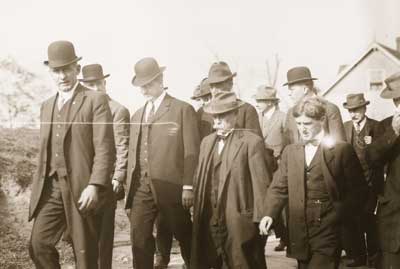
CORRECT-becker
Some offenders find prison to be particularly brutal places to live in spite of protocols in place to protect them. Sex offenders whose victims were children or elderly are vulnerable. Inmates who snitch might as well lock themselves in their cells and never come out if they hope to survive their term unscathed. Young, cute and transsexual inmates can create a buzz inside, causing authorities to add another layer of security to ensure their protection.
While all of these inmates present specific challenges, they’re still not the most difficult to protect. Inmates have done a lot of slimy things to get to where they are and manage to survive their bit, but make your living in law enforcement or the judicial system and break the law … you’ve likely made a bed you’ll have to hide under. What, public servants in jail? Never!
Handling Bad Apples
Let’s face it, every profession has its share of bad apples, but when one of those apples falls from the law enforcement tree the thud reverberates in every newspaper and is broadcast across a very broad range. As the news spreads, every convict the disgraced officer ever put behind bars is relishing the time when they’ll come face to face on their turf … the prison yard. While media is busy keeping the inquiring minds of the public informed of the latest public servant transgression, you can bet the administrators of the facility receiving the official-gone-bad are planning for increased protection from the door.
The challenges for the jail/prison are not limited to protecting the LE prisoner from inmates drooling at the chance to get even, but also from the contempt of the hardworking honest men and women in uniform. Let’s face it, nothing irritates most of us more than seeing an entire profession discredited by one disloyal to their oath to protect and serve.
Most often, the pre-trial offender has been in a county jail under administrative segregation, sometimes referred to as protective custody. Protection from other inmates is assured by keeping the defendant confined to his cell in an area of isolation. Certain staff may not be permitted to work on the unit where the inmate is housed because of friendships or previous business relationships. If there are too many acquaintances inside, they may be housed in another county’s jail pending trial.
Program Accessibility
After sentencing, time in a state prison typically follows. The state prisoners are even more anxious to spend a little “recreational” time with the new detainee, so the new convict goes back into protective custody.
Ideally, prisoners should be confined in the least restrictive custody possible in order to provide programs and services necessary to support rehabilitation. Long-term protective custody doesn’t make programs available to the official-turned-felon even though he has unique needs. Additionally, many offenders in this category have Type A personalities and don’t react well to their new submissive roles and mundane existence.
Some are very embarrassed and experience emotional trauma different than those of their cohabitants. They need therapeutic intervention and many need new job training because it’s unlikely they’ll find work in law enforcement once released. So, how do we address their needs yet keep them protected? Is it possible to hide them in plain sight somewhere else in the system? Absolutely.
Out Of State Transfer ICC
Interstate Corrections Compact (ICC) is a contractual agreement between member jurisdictions to use their correctional facilities to provide suitable confinement and programming to inmates from other members’ jurisdictions. Essentially, an inmate requiring confinement in protective custody in one state could live safely in general population in another state where he could participate freely in programs. ICC is an option for ex-law enforcement types and those participating in witness protection programs.
Unfortunately, cutting through the red tape doesn’t even begin to describe the obstacles of acceptance as an ICC transfer. In addition to the cumbersome requirements, member states also have an expectation of being able to offload one of their cases if they take a case. Since there can be no disciplinary problems with the offender prior to transfer, administrators who are able to identify and counsel the offender at reception have the most success with this program. Helping the offender understand the difference between his conditions of confinement in the state where he was employed, as opposed to the freedom he may have if he can successfully be transferred under ICC, goes a long way in making this program work.
A downside of ICC is the difficulty in preparing someone for release. Many states require an ICC inmate to be returned to his home state to be readied for release, and because other inmates have long memories the ex-official must be placed in solitary confinement again. Everyone can agree prison is no fun and bad cops create logistical problems for the prison system — an ICC transfer is one solution.
By D.M. Chamberlain
Read More Corrections Articles
View Of The American COP June 2014 Issue Now!















